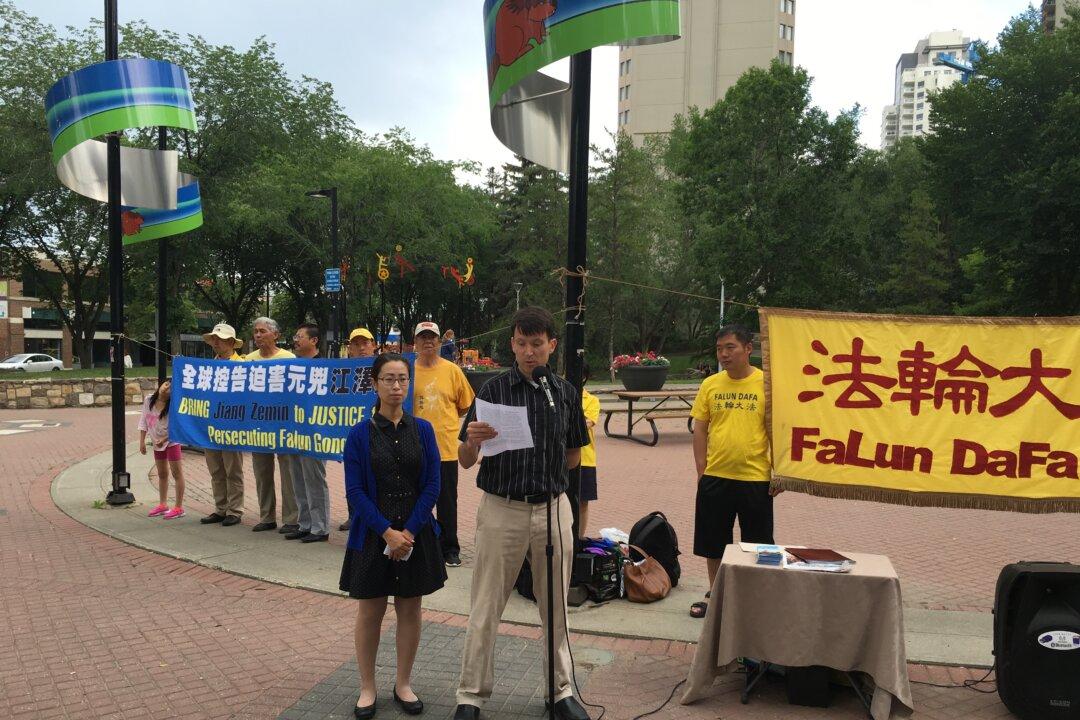EDMONTON—An Edmonton woman is worried for her mother who she believes has been arrested in China and whose whereabouts is unknown.
Hongyan Lu, a Canadian citizen, says her 59-year-old mother Huixia Chen was arrested for practicing Falun Dafa, also known as Falun Gong.
Falun Dafa is a traditional meditation discipline that was practiced freely by tens of millions in China before former Chinese leader Jiang Zemin cracked down on the practice in 1999 due to its great popularity, exceeding the number of Communist Party members.
Jiang launched a brutal campaign of persecution against the practice, including detention in forced labour camps, torture, death, and forced removal of organs from living Falun Dafa adherents to sell for profit.
My biggest concern is her becoming a target of organ harvesting.





